
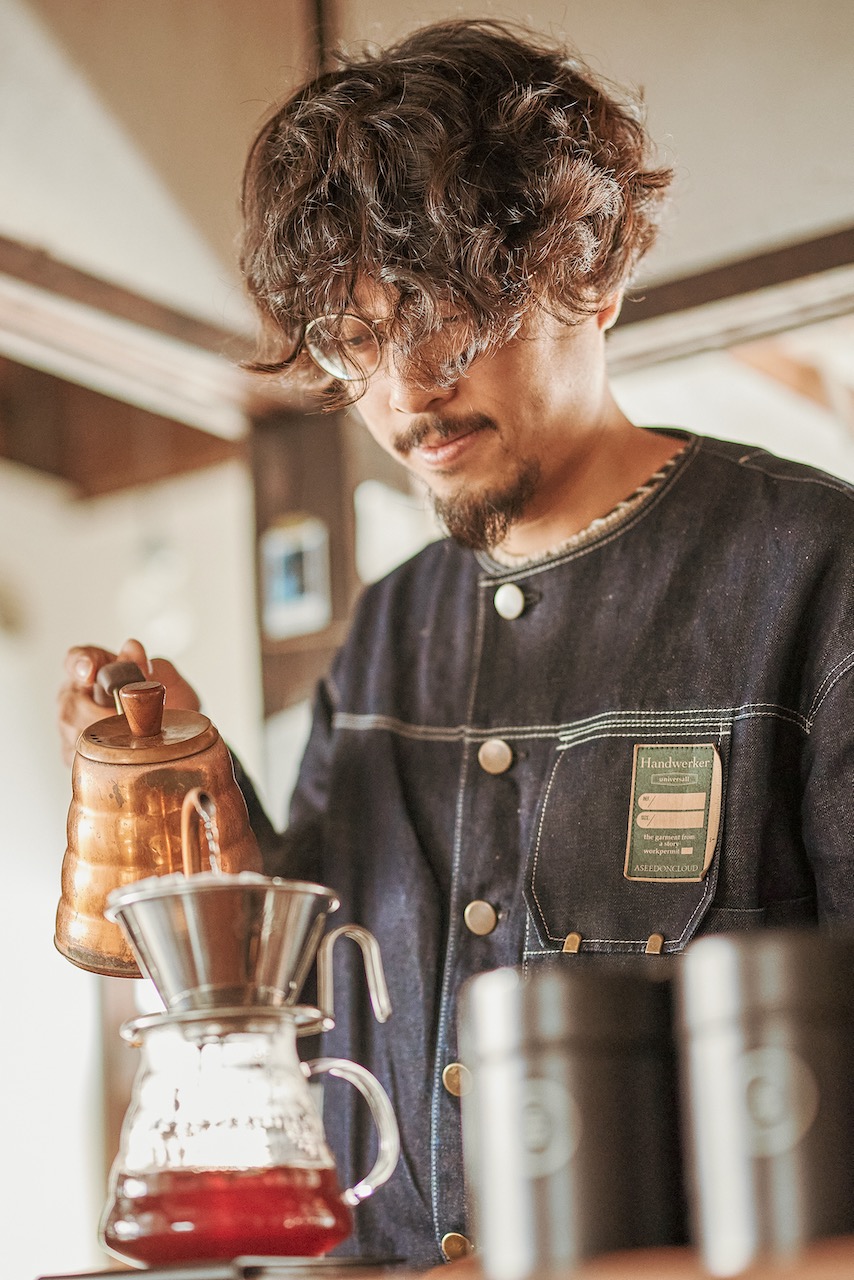
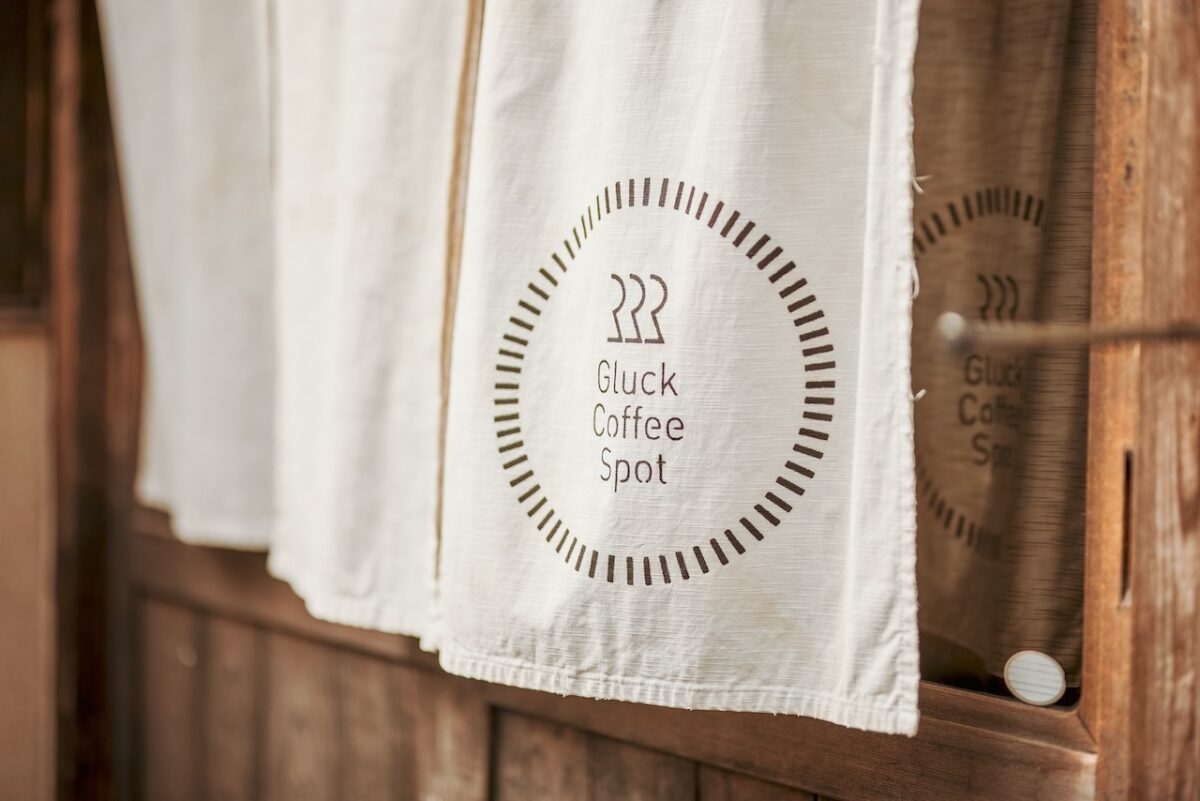
Gluck Coffee Spot opened in 2017 in the center of Kumamoto City, southwestern Japan. The company operates three cafes and one roastery that sells roasted coffee. All located in the city, they are attracting more specialty coffee enthusiasts by the day. The manager, history buff and coffee aficionado Takafumi Miki, oversees everything from sourcing and roasting coffee to running the shop. Though coming across as easy-going, Miki approaches coffee with the stoicism of a warrior. We’ve spoken to Miki to dig deeper into his past, present and future.
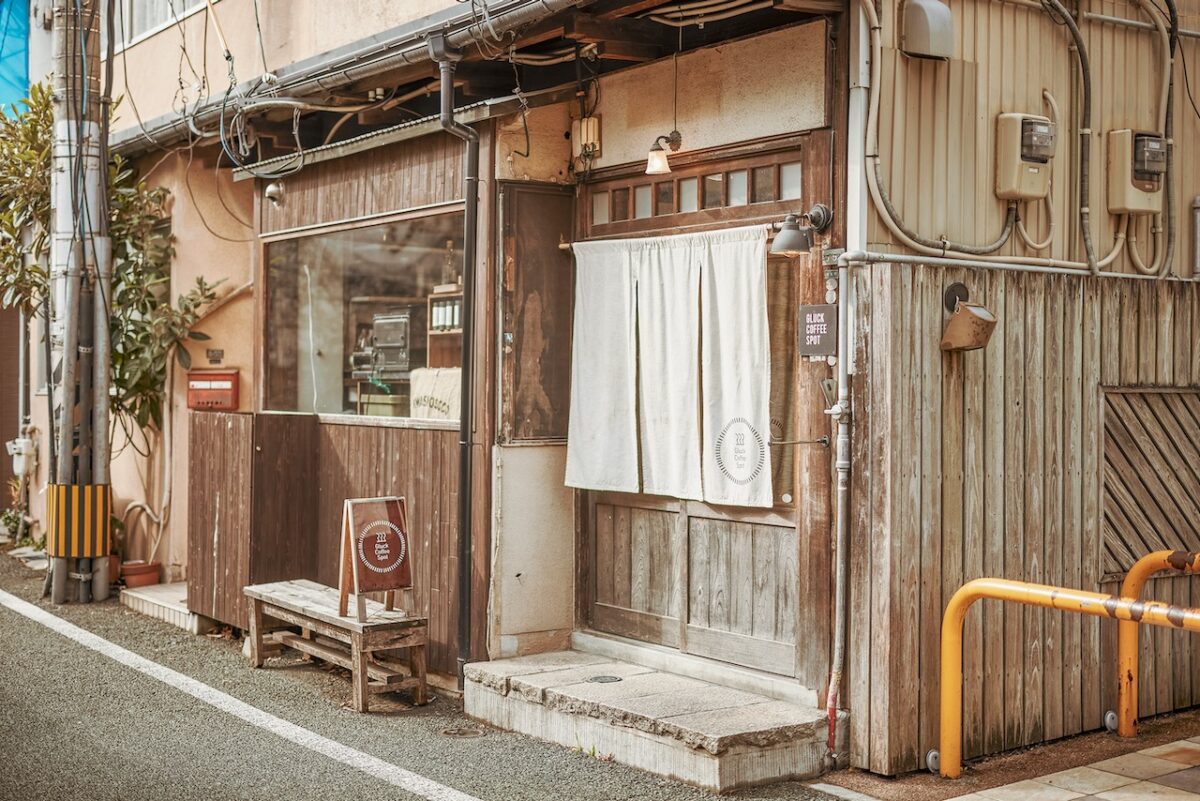
Expanding the market and reaching out to more people
A retrofitted, old-fashioned 70-year-old building near Kumamoto Castle is home to Gluck Coffee’s first café. Customers are greeted by the warmth of the Japanese-style woodwork as they pass under the traditional short curtain at the entrance.
“Our core desire is to make specialty coffee available to as many people as possible. That’s been part of our vision ever since we opened our first cafe and the reason why we searched busy commercial areas for its location.”
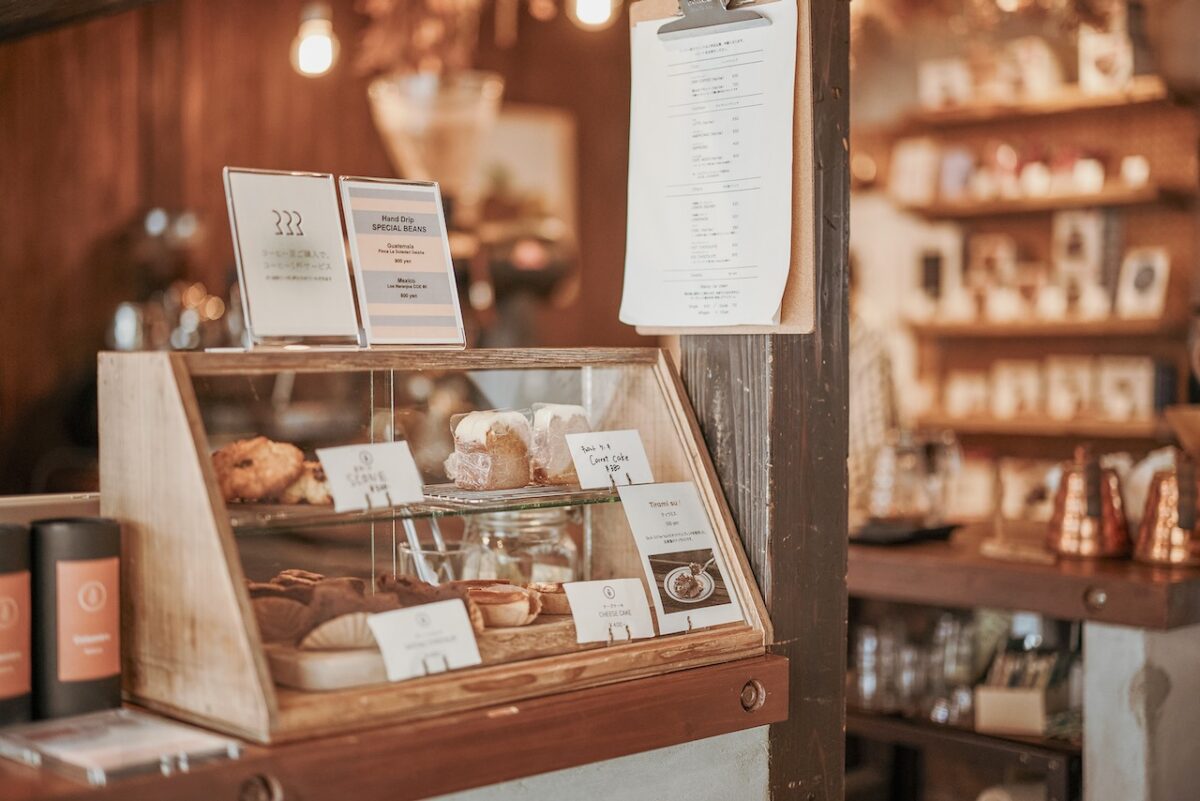
Out of several candidates, they settled for the dodgiest one.
“I felt that the other properties we looked at would be too bland and make us look like just another trendy coffee stand. That was uninteresting. This place, on the other hand, had its own character. For the interior, we try to create the casual atmosphere of a cafe that attracts even those who are not particularly interested in coffee.”

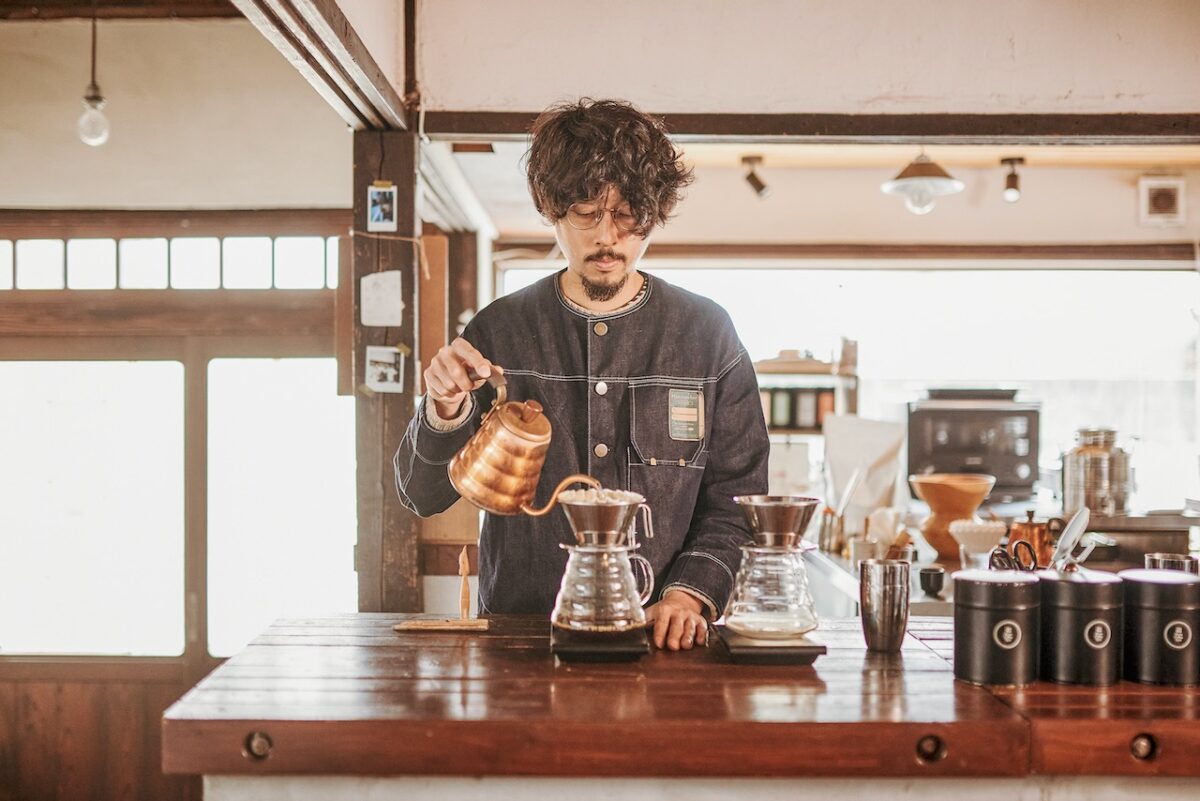
Stumbling across ignition
Miki first stepped into the world of coffee when he was a student. After he left his native Oita Prefecture to go to university in Kumamoto, he started working part-time at a major coffee chain.
“I saw a familiar logo in a job posting. Thinking it would be cool to work there, I applied. I wasn’t even interested in coffee, and I had hardly ever been to a coffee shop. On top of that, I was shy. So at first, it was really uncomfortable talking to strangers at the cash register.”
Nevertheless, as he continued to work, his interest for the service industry grew larger.
“The service industry is fun because there are no cookie-cutter answers. Customers have different personalities. So you have to adjust how to approach them or how to make suggestions. Baristas must be service-oriented. So I was able to hone my ability to pick up on what customers are looking for and respond to their needs.”

As Miki stayed in the part-time role after graduation, AND COFFEE ROASTERS opened its first outlet in Kumamoto, now the forerunner in the city’s specialty coffee scene. There, for the first time in his life, Miki tasted coffee that clearly had unique flavors of its own. This experience left a lasting impression on him.
“The first specialty coffee I drank was an Ethiopian Natural, and it was really good. It’s not that I don’t like full-bodied or deep coffee. But I found coffee with distinct characteristics to be more interesting. That’s how I got hooked on coffee.
I like history. Specialty coffee is appealing to me because it comes with a narrative about its roots. My role is to respect producers’ efforts and differences between varieties, and try to express them through my roasting and brewing. I think that if we can present those different characteristics, customers can acquire a taste for coffee.”
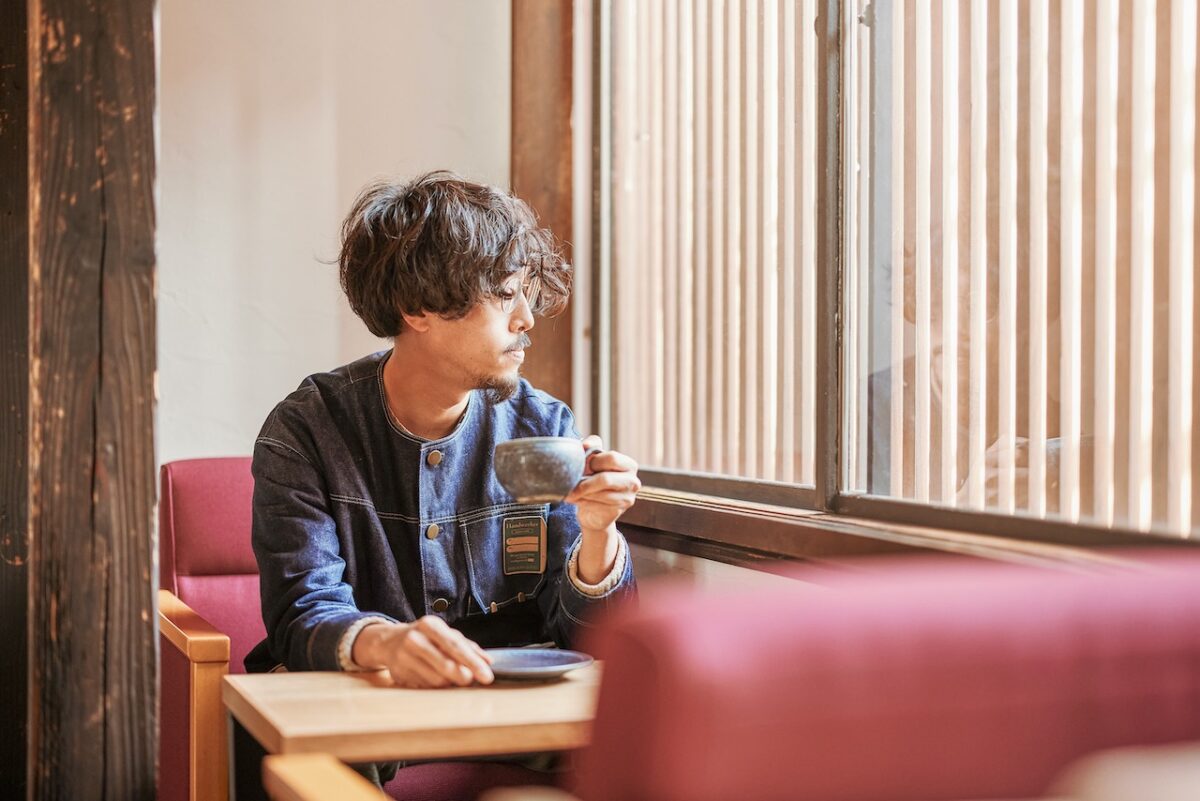
Less than a year later, Miki and a part-time colleague opened a coffee shop in an apartment. They bought a roasting machine without knowing left from right. But they were forced to close the shop within a few months after receiving complaints from neighbors. After that, they switched to food truck sales. But they couldn’t earn enough revenues for the two of them to make a living, and they went their separate ways.
“I started a business on the tailwind of young age. I ended up with debts as a result of the failure. Even though I was able to pay them off, I realized how unforgiving business can be. It was a good lesson for me. And this experience ignited my hunger for accomplishment. And I made up my mind to launch a career in this field.”

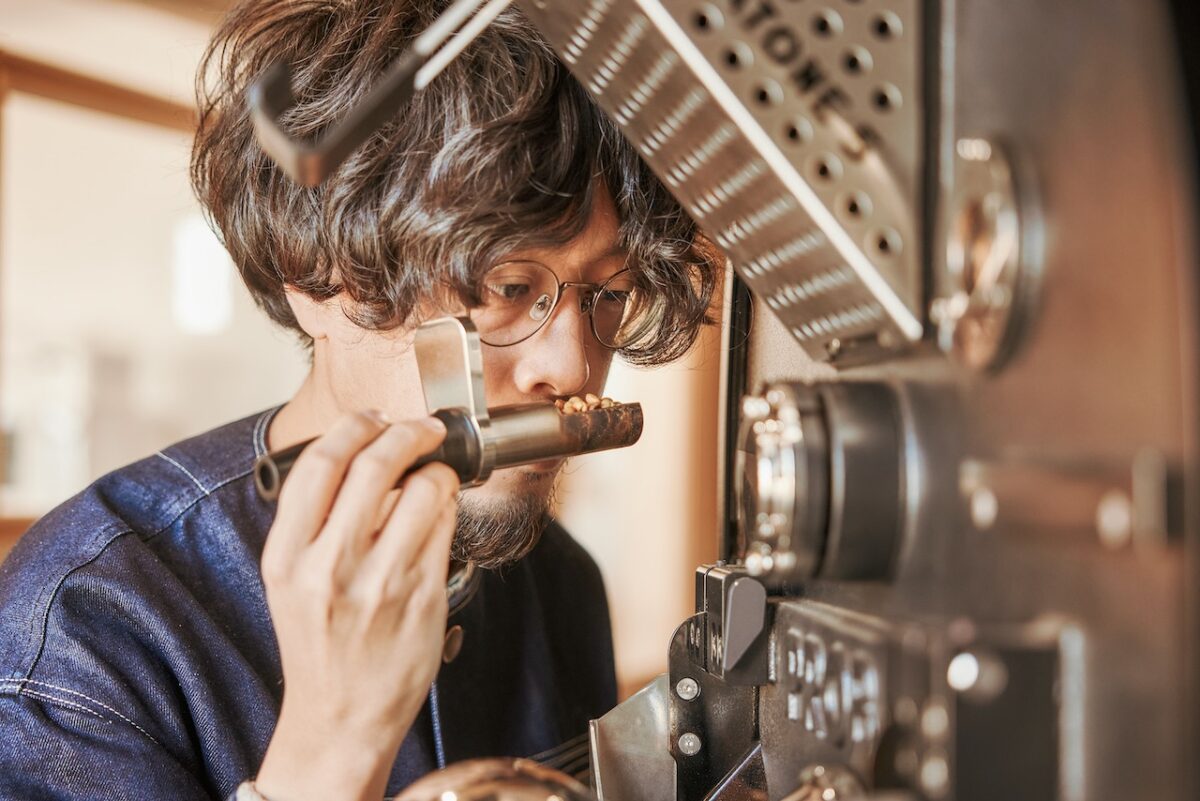
Work like playing
Having faced such harsh reality, Miki decided to open his own shop again only after gaining enough knowledge. However, there was no environment in Kumamoto where he could work while learning about specialty coffee. So he chose Tokyo as the next stage of his career. When he heard that an acquaintance of his was opening a café in Tokyo, he decided to join its opening staff.
“I learned a lot while I was in Tokyo. I went to seminars and took part in Coffee Festivals to help out at AND COFFEE’s booth.
When I was in Kumamoto, I rarely met people of my generation who were working in the specialty coffee industry. Meanwhile in Tokyo, many people around my age were already working hard on the front lines. I felt it would be difficult to break into that crowd. So I thought it would be better to bring this passion back to Kumamoto and give it shape there.”
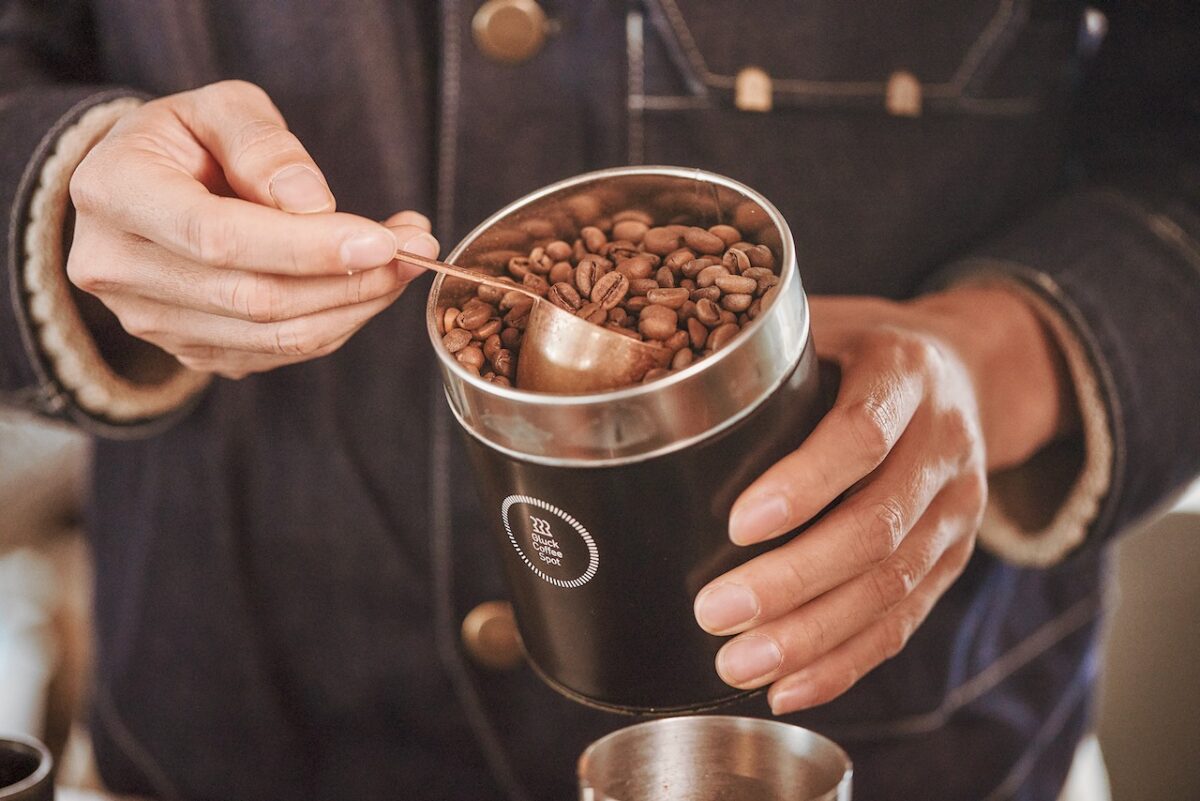
After his workplace in Tokyo had settled down a year after its opening, Miki returned to Kumamoto, feeling inspired and eager. After working as a barista at the bar counter of an apparel shop for about a year, he joined Gluck Coffee from its inception. Gluck Coffee is part of a company’s diverse portfolio, and Miki is a manager at its coffee business.
“I didn’t particularly want to start my own business after all. And I was cautious about going independent because of my past failure. So I am very grateful for my current environment. I don’t experience any stress at all because I’m fully in charge of the store and green coffee sourcing. It doesn’t feel like work because I’m doing what I love. I get to learn about coffee while serving people that enjoy it. On top of that, I get paid. What more can I ask?”
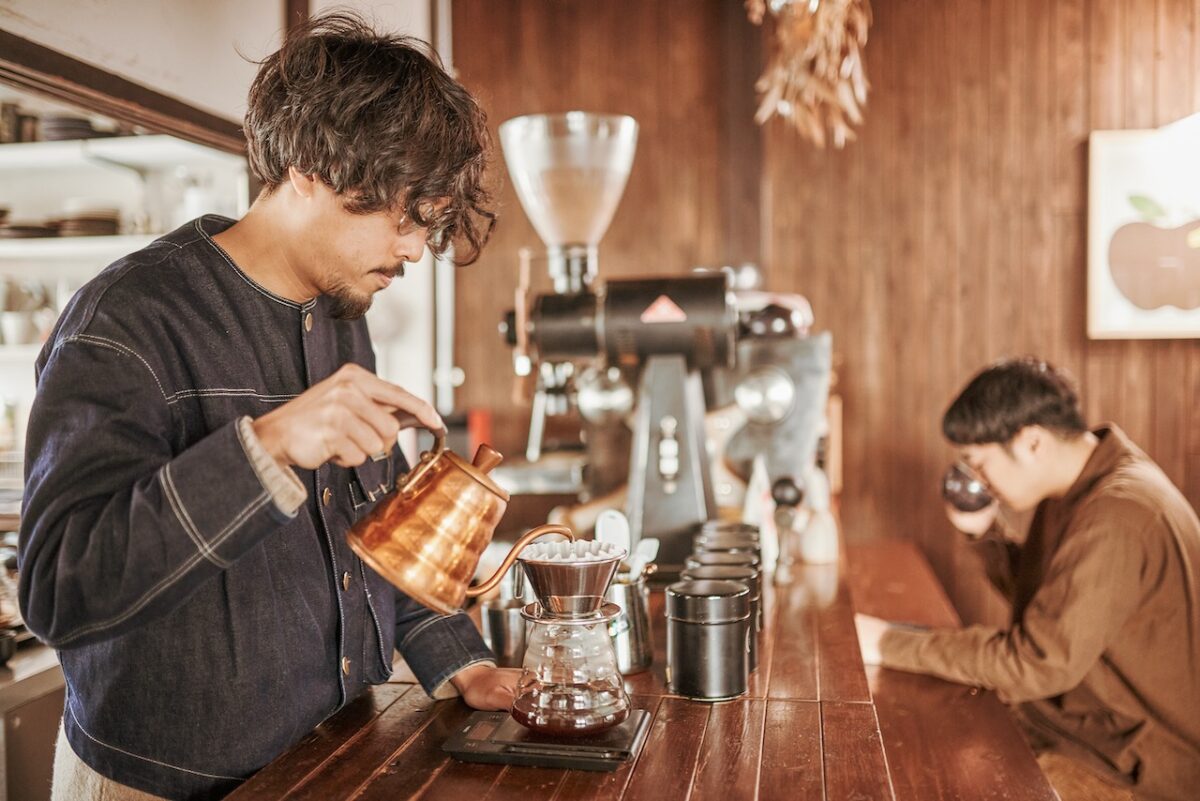
Miki says that he has always tried to stay true to his nature, never overstretching himself. This mindset does not change when he works at Gluck Coffee.
“I don’t actively try to speak to customers or ask for their names. I’m not good at remembering names and faces anyway. So I don’t talk to them until they’ve been here about four times. You might say I’m not really suited for the service industry.
As a business, however, we want to have many people enjoy our coffee, rather than attract the same regular customers every day. So I see it as a well-measured, platonic distance.”
In fact, many people come in for a long break at Gluck Coffee, and Miki’s unforced attitude probably contributes to the atmosphere of the shop.

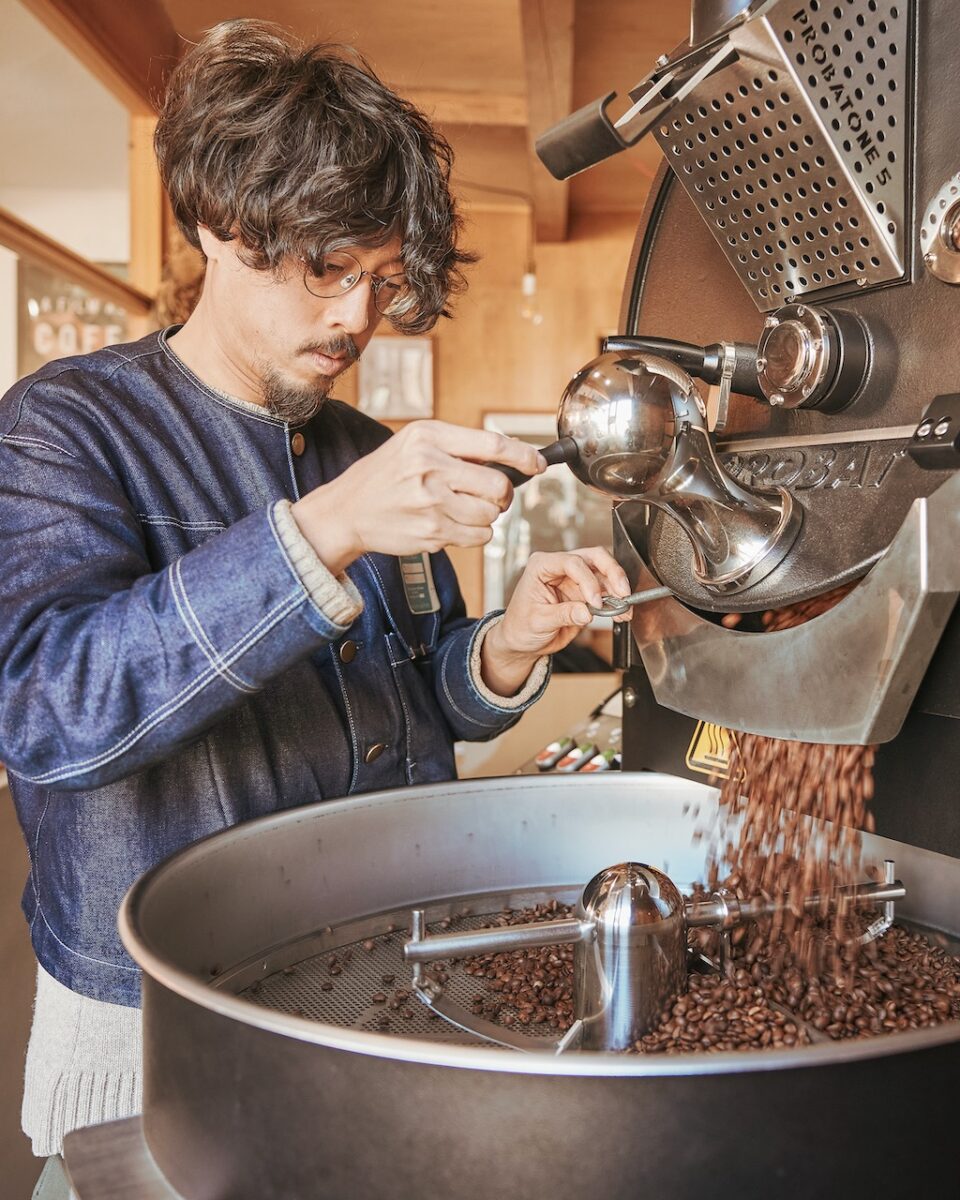
Expanding the cycle
In the five years since its opening, Gluck Coffee has expanded to four locations at a rapid pace. What does Miki have in mind as a manager?
“A big goal of mine is to create jobs in rural areas. I’ve been able to continue this line of work, but other people aren’t so lucky. I think there may be people who want to make a career out of coffee but have to give up because of a lack of opportunity.”
Miki himself realized such an opportunity gap when he left Kumamoto for Tokyo. That’s why he wanted to provide his younger peers in Kumamoto with chances to try their hand in the coffee industry.
“The more stores we have, the more people we can hire, and the more coffee we can sell. And the more we buy, the more we give back to the producers. It’s all a cycle, you see? And I’d like to make that cycle expand as wide as possible.
I used to think that opening a small coffee shop by myself would be fine. But I began to think that on such a small scale, I would end up being complacent and I would not be able to become a true professional.”
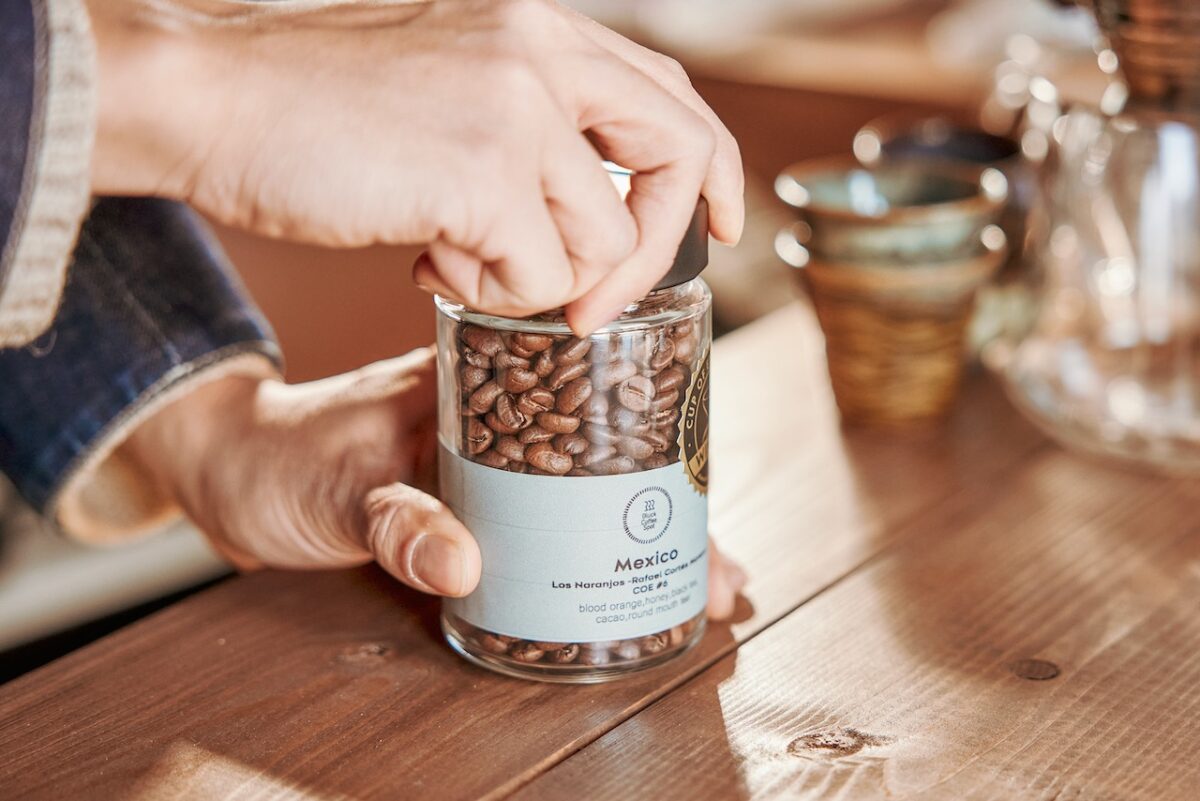
Miki used to love Lego blocks as a child and often played by himself. However, he says that his encounter with specialty coffee was the catalyst for him to come out of his shell.
“When you are involved in specialty coffee, you should focus on the producers as well. That being the case, you need to make a name for yourself. Roasting coffee by myself would be like piling Lego blocks. A true professional should strive to reach out to as many people as possible and create a positive cycle.”
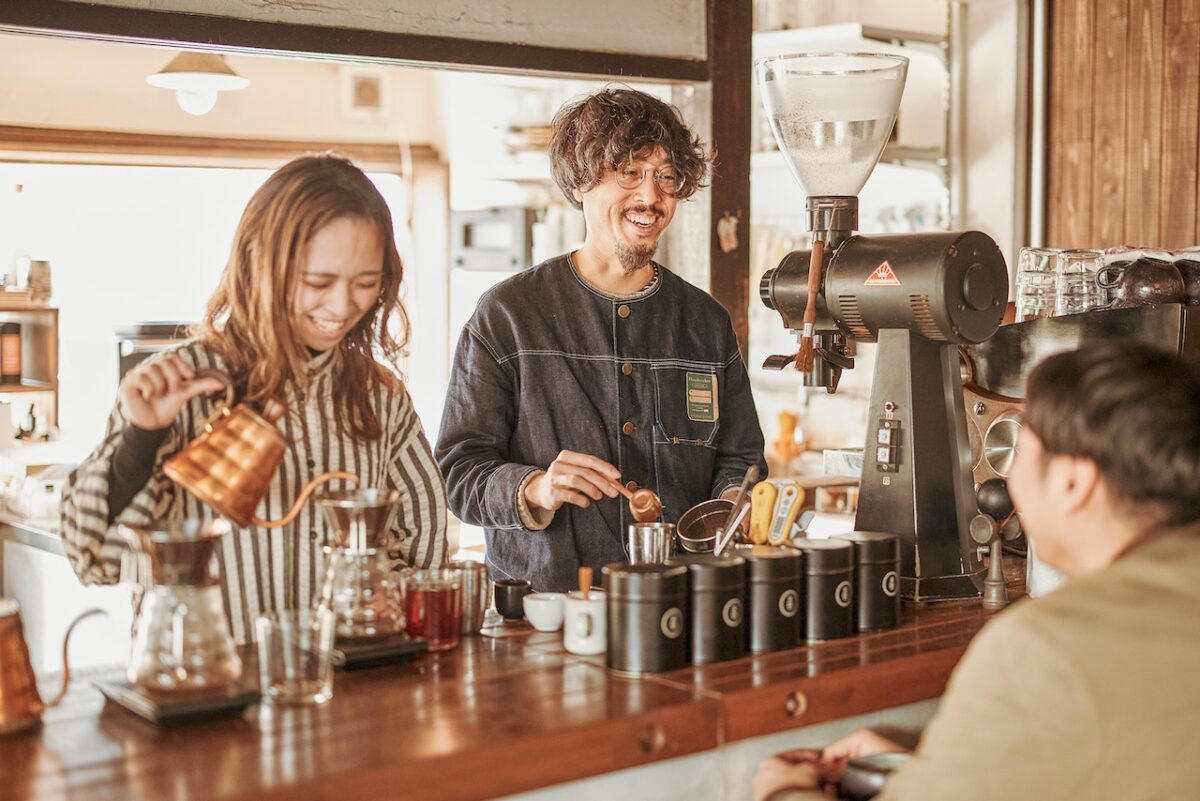
When we asked Miki how Gluck Coffee has managed to keep expanding, he cited the quality of service provided by its staff.
“Of course, techniques are important. But if we only focus on skills and approach customers in an unfriendly manner, they will stop coming. In this respect, I feel that our staff is on a high level.
Gluck Coffee doesn’t have a set recipe, nor do we have a service manual. Rather, we just make sure to be on the same page about what taste our brand aims for and what we want to achieve. If you pass your final exam after two to three months of integration and training, you’ve earned your debut as a barista. It would be bad for motivation if your love for coffee is bound to a set recipe.”
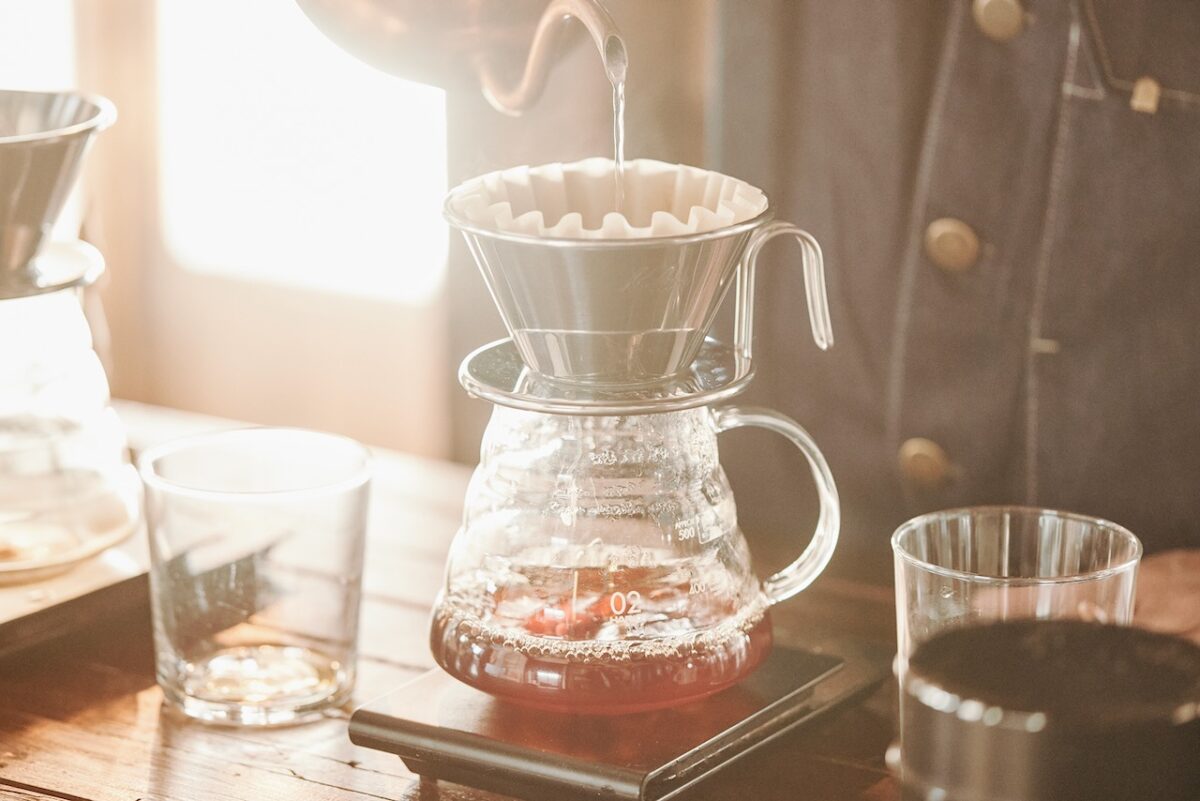
Miki goes on to explain that if inconsistent coffee quality is paired with a predetermined recipe, you can achieve acceptable results, but never an exceptional one. The interesting and difficult part of being a barista is devising ways to achieve exceptionality regardless.
Therefore, it comes as no surprise that he expects his staff to flexibly respond to changing needs while staying true to themselves.
“I think it’s important for people to think for themselves, so I try not to impose my views on them. When it comes to hiring, I scout from among the customers who often come to the shop. Like-minded people gather here, so it makes the shop come together.”

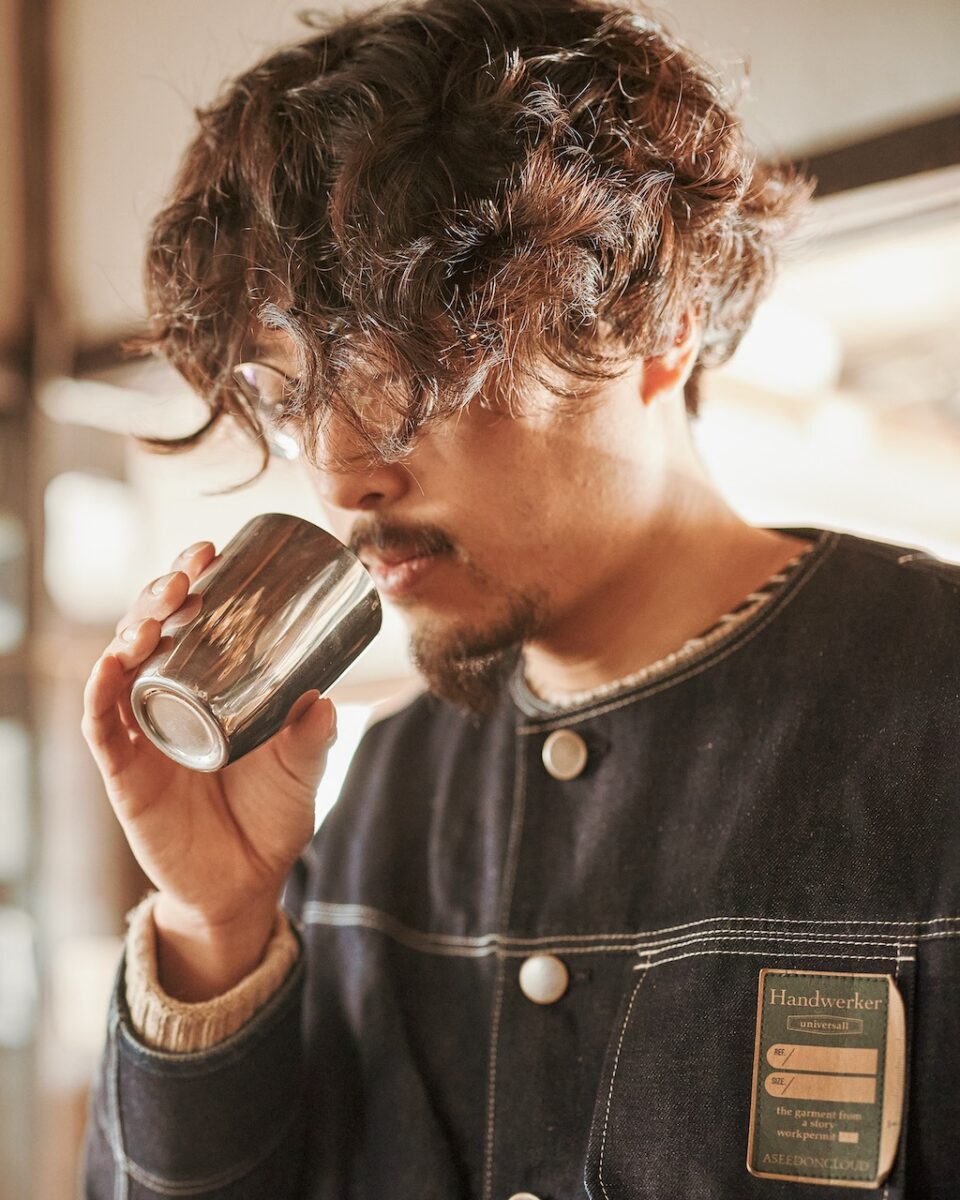
Unshakable flexibility
Lastly, we asked him about his future goals.
“In terms of business, we would like to make our coffee more prevalent in people’s lives. So far, we have been opening stores in the center of the city, but I think it would be interesting to open shops closer to our customers. Rather than doing something specific, I think there is room to get closer to people’s daily lives.
I would also like to visit origin countries. Apart from achieving different flavors through roasting and extraction techniques, I want to meet the producers and express my impression of them. I think that would allow me to polish my skill further.”
Miki is currently participating in the COFFEE COLLECTION WORLD DISCOVER, a competition that aims to discover exceptional producers and roasters and he is advancing to the final round where 10 shops will be selected from 55. The task at hand is to pursue “a taste unique to the individual.”
“I think I’m starting to get good scores in cupping. However, when a coffee is so good that it stirs your senses, there is a kind of emotional touch that cannot be expressed in the score. In my coffee, these stirs aren’t waves yet. This is where I think the realm of expression rather than technique comes into play, and that’s why I want to meet the producers.”
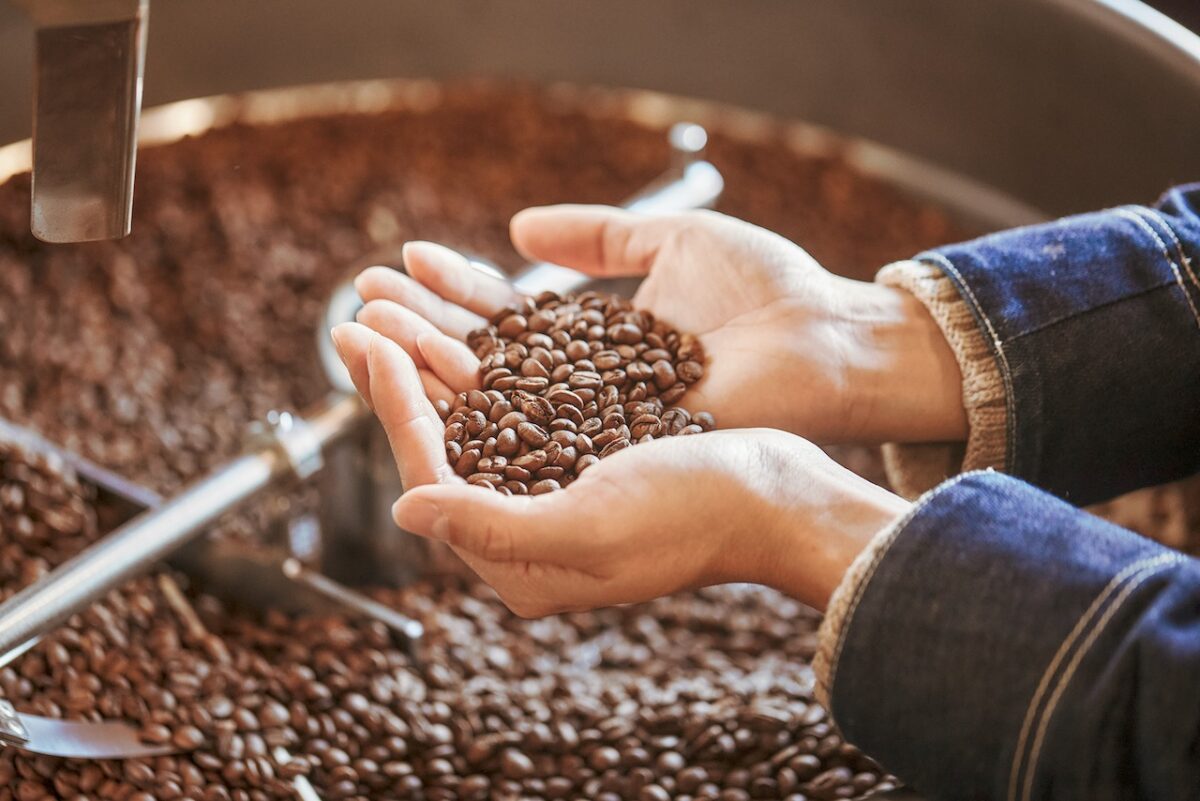
Miki says that when he started at Gluck Coffee, he decided to continue for 10 years. Currently, he is in his fifth year.
“I have been told by other business owners that there is a change of perspective which comes with 10 years of experience. It’s true that I see the landscape through a different lens as I move forward, and I want to expand my activities accordingly.
I have my clumsy and stubborn sides, and I can’t grow that fast, so I must keep at it. My ideal is to live like a warrior, with a coherent set of principles. Since I have decided to make my living in coffee, I want to push the envelope and be the best at what I do. In world history, hegemonies can shift rapidly, and that comes with a fair share of hardship. In that light, I think the most important thing is to develop yourself steadily without getting complacent.”
Originally written by Mieko Karube
Edited by Tatsuya Nakamichi
Photos by Kenichi Aikawa
Translated by Jouke van der Woude
MY FAVORITE COFFEE
I enjoy a cup of coffee at a familiar place on a day off, spending a carefree time, while having a leisurely chat with acquaintances. I like drinking coffee in such a relaxed state the most, and I would like my customers to have a similar experience with a good cup of coffee in their everyday life.

Gluck Coffee Spot
Gluck Coffee Spot
SUIZENJI
- [Open]
- Mon~Fri 11:00-19:00, Sat~Sun 9:00-17:00
Gluck Coffee Roaster
- [Open]
- Mon~Fri 11:00-19:00, Sat~Sun 9:00-17:00
licht coffee&cakes
- [Open]
- 10:00-20:00